The average cost of Skin Cancer Treatment in London approximately starts from USD 2000
Treatment cost
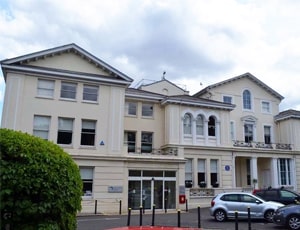
Apart from in-detail treatment procedures available, Cancer Centre London located in London, United Kingdom has a wide variety of facilities available for International Patients. Some of the facilities which are provided by them are Accommodation, Airport Transfer, Choice of Meals, Interpreter, SIM, TV inside room. Also listed below are some of the most prominent infrastructural details:
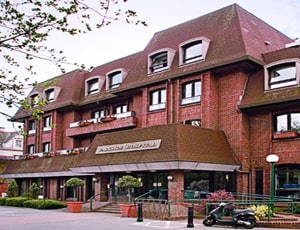
Apart from in-detail treatment procedures available, Parkside Private Hospital located in London, United Kingdom has a wide variety of facilities available for International Patients. Some of the facilities which are provided by them are Accommodation, Airport Transfer, Choice of Meals, Interpreter, SIM, TV inside room. Also listed below are some of the most prominent infrastructural details:
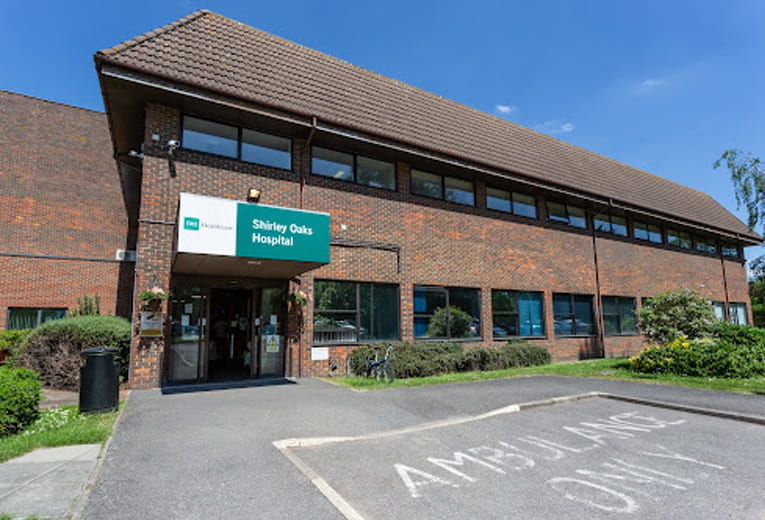
Shirley Oaks Hospital is a multispeciality hospital established in 1986 and is part of Circle Health Group. The hospital is located on the outskirts of Croydon in Shirley Oaks Village. The hospital offers a wide range of diagnostic and treatment services to patients allowing them to choose the services that they wish to avail in a hassle-free manner.
The hospital is a multispecialty facility that offers all types of treatments from 15+ specialties, including general medicine, ophthalmology, gastroenterology, and dermatology. Shirley Oaks Hospital is associated with 80+ consultants from within the UK.
The hospital offers services and treatments to patients under the age of 18 years and above.
Shirley Oaks Hospital offers a very warm and comfortable environment to the patients, from the moment they enter the building, whether for consultation or inpatient stay.

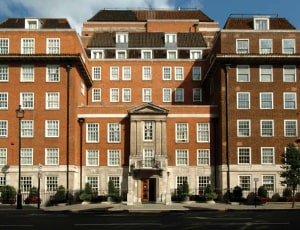
We, The London Clinic family, take pride in our reputation as a multi-disciplined healthcare facility. With skilled nurses and expert consultants, our medical teams are always focused to deliver the best individualized medical care. More than 1,000 nursing, clinical, and support staff are currently working with us to give our patients an extensive range of treatments. We use cutting-edge technologies to ensure a comprehensive range of healthcare services. Not only that, in order to make your stay with us comfortable enough, we equip our patient bedrooms with:
Patients from all over the world fly to us to get their procedures done by our specialist doctors, which is why we also provide our patient's concierge services. Our concierge services include:
The London Clinic has a zero-tolerance policy when it comes to hygiene and cleanliness. Our dedicated housekeeping team cleans every room every day between 8.00 am and 5.00 pm. They are also entitled to supply fresh towels every day and clean the rooms properly between patients.
We also have a day surgery unit based on the third floor at 20 Devonshire Place to make sure a hassle-free surgery as well as post-surgery care for our patients. Our cancer care unit at 22 Devonshire Place is also among our key services.
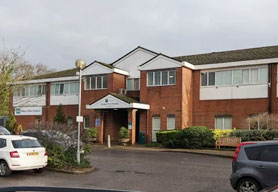
Bishops Wood Hospital is a 42 bedded acute care unit located in Middlesex, UK. Offering treatment and diagnostic services for more than 25 specialties, the hospital was established to offer the highest standard of care and services to patients from across the world. The hospital is a part of the private Circle Healthcare Group, which is a leading provider of state-of-the-art healthcare services and has multiple hospitals and clinics across the world.
The hospital has over 120 specialists and surgeons working with them to provide a variety of surgical and non-surgical treatments to people. The hospital is particularly known for a variety of orthopedic procedures that are carried out, including knee and hip surgery, hand and wrist surgery, foot and ankle surgery, and shoulder and elbow surgery. The hospital has been instrumental in slowly expanding its medical service and now offers treatments to patients requiring primary, secondary as well as tertiary care.
The hospital boasts of its team of medical and nursing staff, which is available 24 hours a day. Every medical specialist is a part of a multidisciplinary team, which includes specialists from the in-house radiology and physiotherapy department.
Facilities Provided:
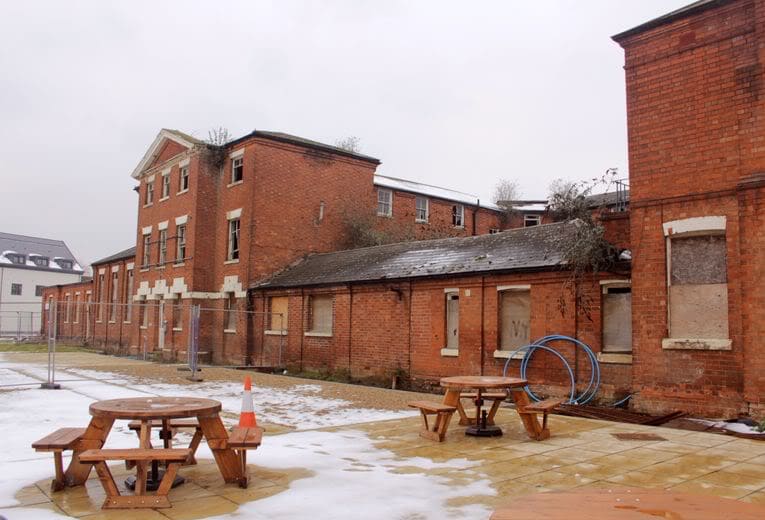
St Edmund Hospital has 26 beds with all rooms offering the privacy and comfort of en-suite facilities, views of the gardens, TV, and high-speed Wi-Fi. The hospital has three functional Operation Theatre for minor or major surgeries
The hospital has an imaging department and physiotherapy team based at the hospital to ensure the best care before and after treatment. The Hospital has a dedicated day case recovery area where patients can relax after day case procedure until discharged from the hospital.
Room service is provided to all inpatients by our catering team. All dietary needs can be catered for at the hospital.
The hospital has car parking spaces around the grounds, with a drop-off bay and disabled spaces directly opposite the entrance to the main hospital entrance.
The hospital has all the needed facilities, the latest in technology, and on-site support services; The hospital offers a wide range of procedures from routine investigations to complex surgery.
St Edmunds Hospital has more than 50 consultants who are experts and are s supported by caring and professional staff, dedicated nursing teams, and Resident Medical Officers on duty 24 hours a day, providing care within a friendly and comfortable environment.
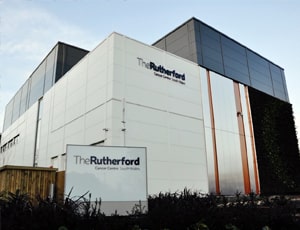
Apart from in-detail treatment procedures available, Rutherford Cancer Centre South Wales located in Wales, United Kingdom has a wide variety of facilities available for International Patients. Some of the facilities which are provided by them are Accommodation, Airport Transfer, Choice of Meals, Interpreter, SIM, TV inside room. Also listed below are some of the most prominent infrastructural details:
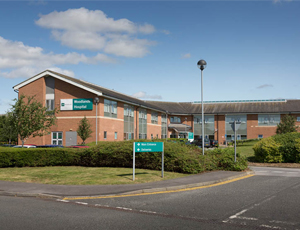
A 38-bedded hospital, Woodlands Hospital is supported by about 150 experienced doctors. It provides the highest standards of modern medical care and is BUPA accredited for its breast care services. All the staff at the hospital are totally committed to ensuring that patients are confident and comfortable with all aspects of their visit. It has resident medical officers available 24/7. Woodlands Hospital has an MRI scanner, an endoscopy unit, and a fully equipped gymnasium in addition to the two laminar flow theaters. It treats NHS-funded patients besides self-funding and insured patients. The hospital has access to the latest equipment and offers private facilities to patients in Richmond, Darlington, and Barnard Castle.
Skin cancer is the most common type of cancer. It typically affects people with lighter skin tone. Skin cancer is the uncontrolled and abnormal growth of destructive malignant skin cells. It occurs when unrepairable DNA damage that occurs in the skin cells triggers a mutation that makes them multiply rapidly and form malignant skin tumors.
Skin cancer is mostly caused by ultraviolet radiation from sunshine or tanning beds. Skin cancers have a limited potential to spread to other parts of the body and may become life-threatening if not treated on time. They are common and can be effectively treated but the treatment of some forms of skin cancers can be difficult. However, early diagnosis and treatment can increase the survival rate.
The following are the three common types of skin cancers:
There are also some other types of skin cancers such as Merkel cell skin cancer, Kaposi sarcoma skin cancer and lymphoma of the skin, but these are rare. Although, some of these are aggressive skin cancers and has a high risk of recurrence.
The typical skin cancer symptoms vary from patient to patient. The symptoms also vary depending on the type of skin cancer that the patient has.
However, basal and squamous skin cancers can have some common symptoms, which include:
Melanoma skin cancer can have some different types of skin cancer symptoms. There is an ABCDE rule guide that explains the melanoma symptoms:
Several effective skin cancer treatment modalities are available, which is selected depending on the type of skin cancer that the patient is suffering from. Your dermatologist will choose the best suitable treatment for you depending on the type of skin cancer, location, your age, general health, and condition (whether the cancer is primary or a recurrence).
Some of the common treatment options for skin cancer include the following:
Destruction of skin cancer by electrodesiccation and curettage is known as EDC therapy. This treatment is fast, easy, and less expensive in comparison to other skin cancer treatment options. In this treatment, the area of the affected skin is numbed with a local anesthetic and scraped repeatedly with a sharp instrument called curette. After that, the edge is cauterized with an electric needle.
Surgery is a more complicated and expensive procedure than EDC. During this skin cancer treatment, the surgeon first numbs the affected area with a local anesthetic. Then the malignant skin tissues are fully removed. Lastly, the edges of the wounds are closed with sutures. Surgery has a greater cure rate and the scar produced is usually more cosmetically acceptable than EDC procedure.
Mohs surgery for skin cancer is a microscopically-controlled treatment performed for common types of skin cancer. During this treatment, the surgeon keeps on removing layers of tissues and see it under the microscope to look for cancer cells.
Radiation therapy is an option when the patient is not suitable for surgical treatment such as the elderly. The treated area cannot be tested to be sure that the entire cancer is gone and the radiation scar looks worse over time.
In the case of basal cell skin cancer, some gels, creams, and solutions can be used to reduce cancerous cells.
Chemotherapy drugs such as fluorouracil (5-FU) can be given orally to the patient to treat skin cancer. It works by stimulating the body's immune system to produce interferon, which attacks the cancer cells.
Alternative therapy includes the use of herbs, vitamins, and special diets, or other methods such as acupuncture or massage. Alternative therapy, however, cannot be used alone to treat skin cancer completely. It can only be used to reduce the severity of the symptoms.
Ask your healthcare adviser for the best multiple options and choose the one that meets your expectations
$2000 is the starting cost of Skin Cancer Treatment Surgery in London. In London, Skin Cancer Treatment is conducted across many multispecialty hospitals.
Skin Cancer Treatment package cost in London has different inclusions and exclusions. The cost quoted by some of the best hospitals for Skin Cancer Treatment in London generally covers the pre-surgery investigations of the patient. The Skin Cancer Treatment package in London includes the fees of the surgeon, hospitalization and anesthesia as well. There are many things that may increase the cost of Skin Cancer Treatment in London, including prolonged hospital stay and complications after the procedure.
There are many hospitals across the country that offer Skin Cancer Treatment to international patients. For quick reference, the following are some of the leading hospitals for Skin Cancer Treatment in London:
While the speed of recovery may vary from patient to patient, they are still required to stay for about 21 days after discharge. This period is important to conduct all the follow-up tests to ensure that the surgery was successful and the patient can go back to the home country.
One of the topmost destinations for Skin Cancer Treatment is London. It has a variety of accredited hospital, affordable cost of treatment and some of the best medical fraternity. However, some of the other popular destinations for Skin Cancer Treatment include the following:
There are certain expenses additional to the Skin Cancer Treatment cost that the patient may have to pay for. These include the cost of accommodation and meals outside hospital. The per day cost in this case may range from 55 USD.
The patient is supposed to stay at the hospital for about 4 Days after Skin Cancer Treatment surgery for monitoring and care. During the recovery, the patient is carefully monitored and control tests are performed to see that everything is okay. If required, physiotherapy sessions are also planned during recovery in hospital.
There are about 4 Hospitals in London that offer Skin Cancer Treatment to international patients. These hospitals are approved to perform the surgery and have proper infrastructure to handle Skin Cancer Treatment patients. These hospitals comply with all the rules and regulations as dictated by the regulatory bodies and medical association in London
Some of the most sought after doctors for Skin Cancer Treatment in London are: